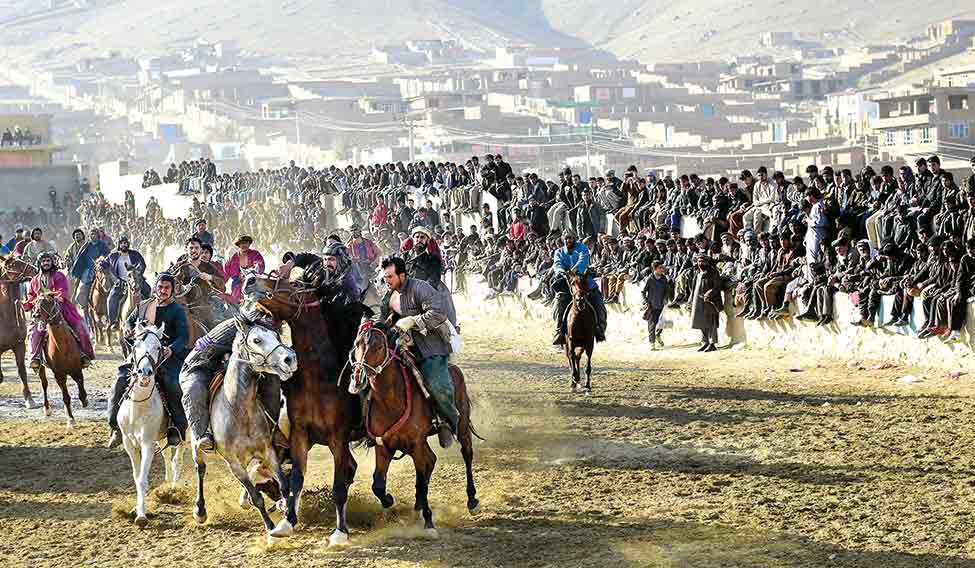It is a Dothraki afternoon. Nearly 30 riders come galloping into a dusty maidan, in a valley surrounded by bleak hills. Attired in embroidered boots, sheepskin coats and fur hats, these men fight. Over the disembowelled carcass of a calf.
Onlookers troop in from villages, spread out mats on the low, mud walls of the maidan, and goad the horsemen. Every time a horseman manages to snatch the dead calf from the others and place it neatly into the centre of a chalk-drawn circle, the crowd hoots, and the rich among them hand out dollar notes to the winner. When in Afghanistan, what better way to spend a winter weekend than to head for a game of buzkashi, the national sport?
Haji Mohammed Amin Obdara, 47, is one of Kabul’s rich men, under whose patronage this expensive game survives. Obdara owns 24 Kazakh horses, each worth more than 05 lakh. He is an ace player himself. He leads the Kabul team and ‘owns’ five of the players, whom he pays an annual salary, though the game is played only seven months a year. In fact, this maidan, in a rural settlement just outside north Kabul, belongs to him. His special guests today include three members of parliament and a former minister. Some of them also own horses.
Buzkashi is an expensive game, driven by a rush of hormones—adrenaline, testosterone and other alpha-male chemicals. It has made bare concessions to modernity—the biggest of which is a time limit. In medieval times, it is said, the game could go on for days.
Within moments of the players charging in, the maidan is a cloud of dust. A water sprinkler enters the arena, trying to settle some of the dust. The players remain unmindful of his presence, galloping around him as they wrest the carcass from each other. Urchins enter the maidan, selling roasted pine nuts and boiled eggs, deftly avoiding kicking hooves.
The game turns rowdy; the carcass is almost torn among the men. The horsemen whip the opponents’ steeds as they fight. Their warcries, the neighing of the horses, and the cheering of the onlookers ricochet off the hillsides. One player falls off his horse. Evading merciless hooves, he tries to mount his steed, as onlookers jeer. There seems to be no referee around.
The players can be easily categorised as well-groomed sons of rich men, here for fun, or the pros, playing for hard cash. The latter rush to the audience every time they score, for baksheesh. Obdara is an exception. Clearly among the top players, he has managed to place the carcass in the chalk ring the most number of times. Once, as he rides up to the viewers’ gallery to quaff some Afghani green chai, an onlooker hands him a note. He tosses it into the air rakishly and gallops away.
Passionate about buzkashi, he has been playing for 13 years. It has broken his nose twice and damaged one ear drum, but he doesn’t care. It is people like him who have revived the game, which Taliban had banned.
Buzkashi derives its name from two words that mean calf and merciless. It isn’t for the fainthearted, or animal rights advocates. The calf was butchered just before the game. It is the prize that the top player will take home. The players tell me that the meat, made tender by the relentless tugging and hurling and pounding, tastes amazing.
As the weak sun sets behind the hills, the commentator announces the bumper prize—$200 to the one who scores the last goal. There comes a tough Afghan astride a frothing steed, one hand tugging the carcass, the other wielding a crop, the reins between his teeth. He scores, and there is thundering applause. Caught in the moment, I, too, clap excitedly and just stop short of cheering when I realise that I am the only woman among nearly 250 men. I sit down, demurely tugging at my unaccustomed hijab.






